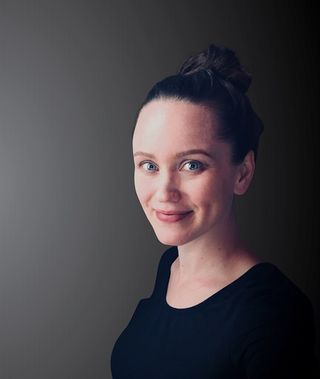Q&A with Alli Torban, Data Visualization Designer and host of the Data Viz Today podcast
By Alan Hylands

Seeing as this week’s Analyst in the spotlight has spent a considerable portion of her career working in both the FBI headquarters and the Pentagon, I’m going to be extra nice to her. Friends in high places and all that…
These days, Alli Torban is a highly regarded data visualization expert and host of the popular podcast, Data Viz Today. Alli takes us through her background as a government systems analyst and how her journey into motherhood also took her into the wild world of data visualization.
Welcome to Analysts Assemble, Alli Torban.
Tell us a bit about yourself, how did you get into the data space and what does your data journey look like so far?
I have a background in math and GIS, and I spent the first seven years of my career as a software tester and systems analyst for various government clients like the FBI and The Joint Chiefs of Staff in Washington, D.C.
I stumbled upon the world of data visualization while being a stay-at-home mom. I wanted to use my time off from my career as a chance to pivot into something that I was more passionate about, and data viz turned out to be it!
The snag was that I didn’t know the first thing about the data viz design process. So I decided that the best way to learn would be to start a podcast that documents the small but important decisions that go into the amazing visualization we see around us. That’s how Data Viz Today was born!
After nine months of producing the show and building a portfolio, I was hired as a data visualization designer by the American Enterprise Institute, which is a research think tank. The podcast is now 1.5 years old, and I’m still using it to constantly improve my craft!
What’s a typical day look like for you in your current data role? Which tools and languages do you use? Big team/small team/lone wolf? Remote/office based/co-working space?
I have a very unique schedule! My daughters are still very young, so I work part-time. Two days a week I commute into the office in Washington, D.C. to have meetings with scholars who want to create visualizations for their reports.
The other days, I work from home in the Virginia suburbs creating those visualizations. My primary tools right now are Tableau, R, Adobe Illustrator, and Excel. I’m embedded on the design team, which is only a handful of people.
You’re active on Twitter, host a very successful podcast with Data Viz Today and have created your own data viz courses. How important do you think it is for data professionals, at all stages of their career, to share publicly what they are doing and learning?
I think it’s really important to create and share for many reasons:
-
By sharing your work, you encourage others to engage with you. You can get invaluable feedback and make connections with other people in the field. It’s never too early to start building your network! You need connections and leads when you’re looking for a job.
-
Speaking of a job, creating and sharing your work allows prospective employers to see more about your personality and how you solve problems and express yourself.
-
By articulating your thought process and what you’ve learned, it forces you to really understand it. If you can’t explain something simply, then you probably don’t understand it well enough. When I put together a podcast episode about a specific topic, I have to go deep and anticipate all the questions my listener might have since it’s a one-way conversation. It’s an astounding learning tool!
Where do you see your own data career going next? Building on your technical skills or moving into a more management-based role?
I really want to work on defining my unique design style. I hear from designers that your style chooses you, so I guess I just need to be patient and keep experimenting!
I also have “learn d3” on my to-list. I bought Amelia Wattenberger’s new book, and now I just need to make time to go through it!
If you had a list of “best-kept-secrets” (websites, books, coaches) that have helped you, which would you recommend?
I wish I had started learning data viz by working through Scott Berinato’s Good Charts Workbook. No matter what phase you’re in, you’ll find it helpful.
He patiently explains various concepts (like choosing color), works through a few examples, and then allows you to try. There’s nothing better than hands-on practice!
And if you like to practice using interesting datasets, I’d highly recommend subscribing to Jeremy Singer-Vine’s Data is Plural newsletter, which he sends out weekly with a handful of curious datasets that he’s come across.
What is the number one piece of advice you give to aspiring data analysts?
The advice that I wish I had heard (and listened to!) sooner would be to just relax.
Your viz doesn’t need to do everything. It can’t be everything to everyone.
It needs to be focused on communicating one main goal. That doesn’t mean that it can’t be complex; it just needs to be focused.
Where can readers find you online?
You can find the Data Viz Today podcast on your favorite podcast app or my website! I’m also very active on Twitter 😃